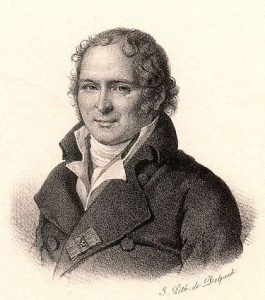
PZ Myers: A consensus doesn’t necessarily mean anything. 200 years ago there was a consensus phlogiston existed. The key thing is: show me the chain of evidence and the logic that you use to derive this.
(From video discussion with Eddie Marcus; see also transcript/paraphrase.)
….
Tim O’Neill: If we look at relevant non-Christian scholars, both current and recent, we find people like Maurice Casey, Zeba Crook, James Crossley, Bart Ehrman, Paula Fredriksen, Robert Funk, Jeffrey Gibson, Michael Goulder, Amy Jill Levine, Gerd Ludemann, Jack Miles, Christina Petterson, Alan Segal and Geza Vermes. None of these people accept or accepted Mythicism.
Nor, as far as I am aware, have most of these scholars ever published or publicly stated a view about mythicism, either for or against. Nor have they all even published a perspective on the historical Jesus, either. It is probably fair to say, however, that in their writings they all have, when and where relevant, embraced the assumption of a historical Jesus.
And to [suggest] that these scholars are simply too unimaginative or too timid to examine and accept the idea that there was no Jesus at all is [without foundation]. [Some of these names are] the leading proponents of conceptions about Jesus and the origins of Christianity that are so much at odds with orthodox Christian ideas that conservative Christian apologists write whole books warning their faithful to beware of their supposedly wild and radical theories. . . . So if [some] leading non-Christian scholars are so shackled to the Christian idea of a historical Jesus because of the vast influence on them of Christian culture, [we need to explain why] this highly Christian influence [appears to be] so narrowly focused and selective. Why is it only on the question of Jesus’ existence that this supposedly pervasive Christian orthodoxy has such influence on these non-Christian scholars, but not any other ideas? How is it that this supposed Christian control only works on the historicity of Jesus, but somehow fails completely on topics such as the rejection of Jesus as
- a Jewish apocalypticist,
- or the promotion of the Farrer Thesis over the Two Source Hypothesis
- or conservative views on the dates and authorship of the gospels
- or any of the dozens of other issues on which the scholarship is sharply divided between non-Christians and orthodox Christian scholars?
Why can and do these scholars present Jesus as
- a Jewish preacher,
- a charismatic hasid
- or a Cynic-style sage
– all ideas substantially at odds with Christian orthodoxy – yet baulk at the idea that he did not exist? . . . It makes no sense that this supposedly powerful cultural bias would only affect non-Christian scholars on historicity and not across a much wider range of disputed topics.
(From O’Neill, Tim. 2018. “PZ Myers and ‘Jesus Agnosticism.’” History for Atheists (blog). September 29, 2018. https://historyforatheists.com/2018/09/pz-myers-and-jesus-agnosticism/.)
I have replaced words in Tim’s original post that I believe are not in the best interests of a sober discussion (some contain rhetorical flourishes laced with unprofessional attitudes; some are sweeping, misleading or incorrect statements) with my own hopefully more neutral words in square brackets and italics. The bolded highlighting and dot-formatting is my own.
Tim’s question is clearly intended to be rhetorical but actually a little reflection on PZ Myers’ reference to the scientific consensus on phlogiston will suggest a ready answer. Continue reading “The Phlogiston Jesus”
